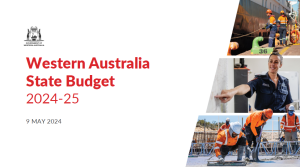Submission to the Senate Community Affairs Legislation Committee inquiry into the Social Security (Administration) Amendment (Continuation of Cashless Welfare) Bill 2020
“We’d never tell an Australian how to spend their own money. It’s for their own decision.”
– Prime Minister Scott Morrison, 8 October 20201
“It’s not for me to tell the Australian people how they should spend their money, that’s for them to determine their priorities.”
– Treasurer Josh Frydenberg, 6 July 20192
The Western Australian Council of Social Service (WACOSS) welcomes the opportunity to make a submission to the Senate Community Affairs Legislation Committee inquiry into the Social Security (Administration) Amendment (Continuation of Cashless Welfare) Bill 2020.
WACOSS is the peak body for the community services sector in Western Australia and works to create an inclusive, just and equitable society. We advocate for social and economic change to improve the wellbeing of Western Australians, and to strengthen the community services sector that supports them. WACOSS is part of a network consisting of National, State and Territory Councils of Social Service, who advance the interests of people on low incomes and made vulnerable by the systems in place.
WACOSS strongly opposes the continuation of the Cashless Debit Card and the removal of the trial parameters to establish it as an ongoing program.
The concept of mandatory income management
Mandatory income management inevitably disempowers participants. Income management approaches can be effective, but in order to be so they must be genuinely voluntary and supported by appropriate wrap-around, holistic services that enable those affected to address their particular needs and take control of their own finances. It is crucial that people are the decision-makers in their own lives, and that is in no way diminished by a person requiring social security payments for any period of time. It is our considered assessment that the weight of evidence on income management models clearly shows that the loss of self-control and of the ability to make timely decisions to manage limited finance for individuals and households living near or below the poverty line is a barrier to achieving employment outcomes and maintaining family wellbeing.
An approach that empowers and respects people as the decision-makers in their lives is needed to design a system that supports individuals and communities, rather than the punitive and paternalistic approach embodied in the cashless debit card.
The wrong policy response
Attempting to address complex social issues with a blunt instrument like the Cashless Debit Card is simply misguided and fails to meaningfully target the causes of the issues being experienced in the regions the card has been introduced. As stated by Dr Janet Hunt from the Centre for Aboriginal Economic Policy Research, the real underlying problem for those regions targeted by the trials is “insufficient economic activity and a consequent dearth of jobs.”3
Instead of a policy like the Cashless Debit Card, the investment and focus for these regions should be on job creation and providing appropriate, culturally-accessible services that support people to maintain a basic standard of living and care for their families, address alcohol and other drug misuse and problem gambling when those problems are present, and maintain affordable and secure housing. We note that issues associated with problem gambling, alcohol and other drug misuse are often cited as the rationale for the policy, however in practice the program does not discriminate between those who do or do not have genuine problems, and does not reflect the large body of gambling, alcohol and other drug treatment research.4
The evaluation process
The significant shortcomings and limitations of the evaluations that have been undertaken for the Cashless Debit Card Trials has consistently and frequently been raised with the Federal Government and Senate inquiries. Despite this, the Federal Government continues to rely on these substandard evaluations to support the rationale for ongoing extension of the Cashless Debit Card arrangements.
As we have raised in previous submissions relating to the Cashless Debit Card, the analysis by ORIMA Research relied in large part on secondary survey data of reported purchasing patterns (many of them given some time after the fact), rather than on primary data of income support recipients’ consumption of goods that cannot be purchased with the card. This results in several confounding factors that directly impact the reliability and validity of the research results, and the ability to draw conclusions from it that allow the attribution of causality of changes in behaviour and wider social outcomes. These include research design and sampling strategy, questionnaire design, recall bias and social desirability bias, rising refusal rates and the combination of longitudinal and intercept data among others.
‘Recall bias’ is where reliability is impaired because people’s memories of past patterns of behaviour are unreliable and shown to be easily influenced by the context in which questions about historic behaviour are asked. Recall data needs to be tested against primary sources of data such as actual spending behaviour. Self-reports are also at a high risk of ‘social desirability bias’, where participants respond in what they consider to be a socially acceptable way. Interviewees were asked to provide personal ID before being interviewed about a government program with a high public profile that includes coercive powers, then questioned about alcohol consumption, gambling and illicit drug use. Researchers working with Aboriginal people (and a significant proportion of those interviewed were Aboriginal) are particularly conscious of cultural conventions where it is considered polite to agree with others and there is a risk they will only tell a stranger or a person in authority what they think they want to hear. It is, in fact, specifically stated in the final evaluation report that this is a particular concern around self-reports of illegal drug use and as a result these reports should be “interpreted with caution.”
Though the trials have been taking place in areas with a high proportion of Aboriginal people, such as the East Kimberley, there was no indication given as to how the survey evaluation engaged with people whose primary language was not English. This is of particular importance considering the difficulties reported in the trial for Aboriginal subjects accessing support for problems with the Cashless Debit Card from Indue due to language barriers. There are robust and well-established ethical principles for conducting research with Aboriginal people – both the AIATSIS (2012) Guidelines and the NHMRC (2003) Guidelines – but neither is mentioned or appear to have been adhered to in the evaluation.
We also noted that the data from the East Kimberley and Ceduna sites were weighted equally, despite the East Kimberley having a much higher rate of trial participants (1247 compared to 757). The description of the first and second survey sampling periods as ‘waves’ is somewhat misleading, as this language is properly associated with a longitudinal study model. The second stage of the study is in fact a combination of a second round of systematic intercept sampling and follow-up sampling of 134 subjects. This data is not analysed separately and it is unclear whether this model introduced a systematic bias into the findings.
The high level of non-responders and refusers to the survey undermines the representativeness of the results. It is important to acknowledge that the experiences of non-responders are often different to those who respond to surveys, and sometimes dramatically so. We noted that there was a dramatic increase in the refusal rate to the second round of the survey (89 refusals in ‘Wave 1’ vs ‘222 in ‘Wave 2’ in Ceduna). This is partially masked by the way the data is reported, as follow up surveys with those who agreed to be re-interviewed in the first round and were directly contacted are included, producing an apparent refusal rate of 24% rather than the actual refusal rate of new interviewees of 48%.
Furthermore, a significant proportion of the respondents in the interviews reported none of the behaviours the trial was intended to target – 180 of the 552 respondents (31.5%) in wave 1 and 228 of the 479 respondents (42%) in wave 2 reporting not drinking, gambling or taking drugs before or during the trial period. The proportion of those not doing so significantly increasing in the second wave at the same time the refusal rate has also risen dramatically.
Taken together, these factors cast significant doubt on the representativeness of the survey findings. As a result, the ability to meaningfully generalising from the survey findings as to the impact the trials have had on behaviour and consumption is very limited.
As we noted in our previous submission, while the ORIMA research has been used as a justification for extending and expanding the trials, no credence seems to have been placed on the finding in both the Wave 1 and 2 reports that the majority of participants indicated that the card had made their lives worse, rather than better. As an outcome from the trials, this seems to be an extraordinary failure and something that should at the very least be taken as an indication that the program has not achieved its purported intentions.
We recommend that the Committee takes note of the Queensland Council of Social Service Review of the Cashless Debit Card Trial and Evaluation and the Australian National University Centre for Aboriginal Economic Policy Research Cashless Debit Card Evaluation, both of which clearly elucidate the fundamental limitations of the ORIMA Research evaluation report.
We note that the report from the Future of Employment and Skills Research Centre at the University of Adelaide entitled Cashless Debit Card Baseline Data Collection in the Goldfields Region: Qualitative Findings faces many of the same problems and limitations as the ORIMA Research. The report relies upon interviews conducted with 66 stakeholder representatives and 64 CDC participants within the Goldfields CDC sites and is limited in its generalisability to broader population groups.
The interviews highlight shared community concerns about social harm and dysfunction within the Goldfields and emphasise considerable gaps in service coverage and functionality within the region. Critical ongoing issues in the region include alcohol and drug misuse, child safety and welfare, family violence, poverty, lack of opportunity and crime. While some respondents expressed hope that the CDC trial may provide a stimulus or avenue to prompt action on these problems and bring in additional services, resources and support, it is clear from their responses that the CDC alone is not considered to be an effective solution to these underlying issues.
During a WACOSS consultation visit to Kalgoorlie in June 2018, we heard from both community service providers and those with lived experience of the cashless debit card system. We were particularly concerned by a number of personal stories shared with us that highlighted the personal and financial problems created by the manner in which the CDC was implemented, particularly in relation to the cancellation of existing direct debit arrangements, the time taken to navigate and get approval to meet ongoing financial commitments, the need to constantly renegotiate ongoing payments through the shop-front, and the financial costs of payment cancellations and delays.
Many people who are reliant on income support, including single parents and carers for people with a disability, are in fact exceptionally good at budgeting to balance their financial needs and obligations against their meagre income on a day-by-day and week-by-week basis, and arbitrary decisions to interfere in and over-ride their household budgets can result in unnecessary financial hardship and distress. Efforts at financial management assistance should start from the position of understanding current household budgetary arrangements and the reasons behind ongoing expenditure arrangements. Assistance should be directed to where it is needed to improve financial management skills and build ongoing budgeting capacity. It is notable that many of those surveyed supported a more targeted approach to the provision of support and intervention based on need.
We also note that the perceptions of some stakeholders of improvements in spending patterns and crime rates need to be grounded in real data, and more detailed analysis is required to separate out seasonal factors or the impacts of wider economic cycles, as well as changes in policing or service provision, from changes attributable to the trial.
Extraordinarily, rather than addressing the failure of the current review processes, this bill even goes so far as to remove the statutory requirement that an evaluation be conducted by an independent expert within 6 months of the completion of a review of the cashless debit card arrangements, seemingly weakening the oversight of the ongoing impacts of this system even further.
Feedback from the East Kimberley
For the Senate inquiry into extending the trials in March 2019, we spoke to a number of individuals in the East Kimberley who reported a serious sense of disempowerment amongst participants in the trial. They observed a continued deteriorating in the quality of life for families and children, who had experienced significant suffering while on the Cashless Debit Cards as a result of mental ill-health, chronic illness and violence.
One East Kimberley resident stated that participants “…are not LIVING being on the welfare card and trying to put bread and food on the table, they are just SURVIVING.”
A social worker whose clients have been using cashless cards informed WACOSS that they have observed clients buying ‘allowed’ products using the card, which they have then exchanged for products and services they are not able to purchase using the card. Typically, however, the clients were needing to spend more on the allowed products they intended to trade than the value of the item for which they were trading. As a result, the card was not preventing them obtaining the items they were not able to purchase with it, but was simply seeing them spending more of their income on those items, contributing to higher levels of financial hardship and increased negative social outcomes.
Conclusion
It is clear that the continuation of the Cashless Debit Card system is not based in any way on robust evidence. This is a stigmatising and discriminatory policy response that seeks to restrict and control the behaviour of individuals, rather than addressing the systemic and structural causes of social issues and challenges in our communities.
The Social Security (Administration) Amendment (Continuation of Cashless Welfare) Bill 2020 should be rejected.
1 Prime Minister of Australia (2020) ‘Interview with Leigh Sales, 7.30’, www.pm.gov.au/media/interview-leigh- sales-730
2 Katherine Murphy (2019) ‘Interview: Josh Frydenberg’, Guardian Australia, www.theguardian.com/australia- news/2019/jul/06/josh-frydenberg-its-not-for-me-to-tell-people-how-to-spend-their-money
3 Dr Janet Hunt (2020) ‘Evaluating the Cashless Debit Care: How will it solve poverty and unemployment’, CAEPR Topical Issue 2/2020, Centre for Aboriginal Economic Policy and Research, Australian National University
4 Nicholas, R., Adams, V., Roche, A., White, M., & Battams, S. (2013). A literature review to support the development of Australia’s alcohol and other drug workforce development strategy. National Centre for Education and Training on Addiction, Flinders University, Adelaide SA.
Lawn, S., Oster, C., Riley, B., Smith, D., Baigent, M., & Rahamathulla, M. (2020). A Literature Review and Gap Analysis of Emerging Technologies and New Trends in Gambling. International journal of environmental research and public health, 17(3), 744




